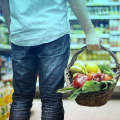
Sustainable Aquaculture Engagement
FAIRR invites PRI signatories to join Phase 3 of its collaborative engagement with seven of the world's largest salmon producers to address biodiversity and climate risks in aquafeed. The engagement aims to encourage salmon producers to move away from forage fish towards more sustainable feed ingredients.
Aquaculture is often positioned as a sustainable way to meet the growing demand for animal protein while ensuring food security and improved nutrition. The UN Food and Agriculture Organization’s (FAO) draft roadmap suggests a 75% increase in sustainable aquaculture from 2020 to 2040 to avoid breaching the 1.5°C threshold, though “sustainable” remains to be defined.
Globally, 70% of salmon are now farmed, making salmon aquaculture the fastest-growing food production system in the world. The feed used to farm salmon contains fish meal and fish oil (FMFO), which are made from wild forage fish. Yet, 90% of wild fisheries are classified as overfished or harvested at maximal capacity,3 and as such, global forage fish availability is forecast to remain flat. Producers have made clear progress on reducing FMFO use since the 1990s when fish-based feed ingredients made up around 80% of the feed composition, to around 30% today, but this ratio has roughly stagnated since 2020. Without further reducing its reliance on forage fish, the salmon aquaculture sector’s long-term growth continues to be at risk of being constrained.
This collaborative engagement aims to push large salmon producers to conduct meaningful risk assessments, in alignment with the TNFD guidance, examining how forage fish availability could constrain salmon production growth in the future. Furthermore, this engagement will encourage companies to disclose a timely target to reduce their exposure to forage fish, supported by a clear strategy detailing the role of each potential mitigation actions (e.g. using an increased quantity of trimmings or alternative ingredients). Finally, companies will be asked to report on their performance relating to reducing the quantity of wild fish used in their salmon feed. Companies will be encouraged to increase the amount of Research & Development (R&D) spent on researching alternative ingredients (e.g. algal oil) which can be used in salmon feed.
For more information about this engagement, please contact laure.boissat@fairr.org
This engagement is closed doe investor sign on. Joining our network is free for asset owners and asset managers.
If you need additional information on the FAIRR network, please contact investoroutreach@fairr.org
- Investor Briefing_Sustainable Aquaculture Engagement Phase 3.pdf Download
Engagement focus







- Environment
- Biodiversity / nature
- Climate change
- GHG targets / emissions
- Water and oceans
- Consumer Staples
- 2 - Zero hunger
- 3 - Good health & well-being
- 12 - Responsible consumption & production
- 13 - Climate action
- 14 - Life below water
- Chile
- Faroe Islands
- Norway